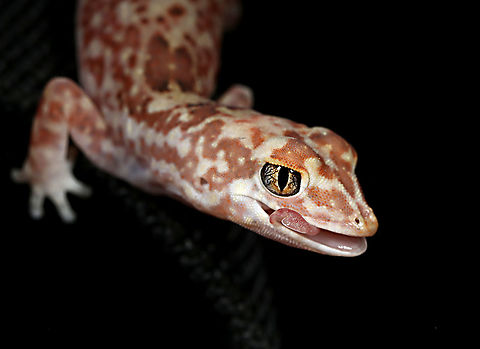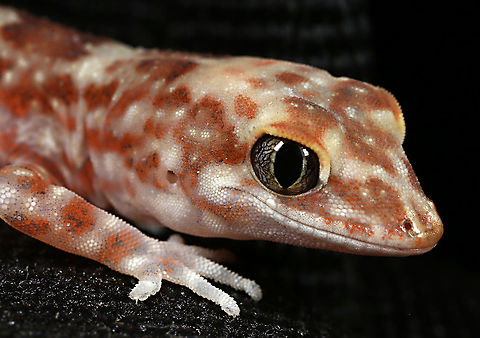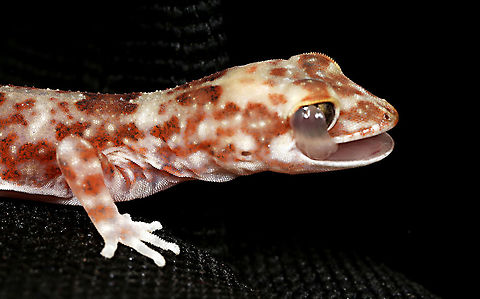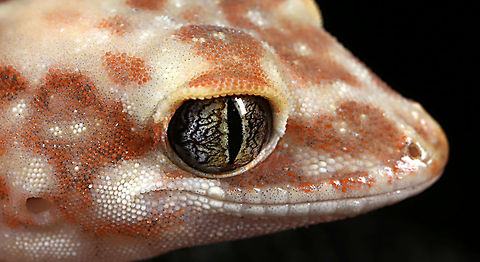
Appearance
Up to 80 mm in total length , the gibber gecko is a pale, creamy-fawn to reddish-brown or dark brown colour above, with scattered darker flecks and spots and some tiny pale dots, and usually with a distinct series of four or five conspicuous, irregular, W-shaped dark brown transverse bars or blotches between nape and hindlimbs.It has a short, convex head with a rounded snout; the ear-opening is very small and rounded. Its rostral scale is very low and is about four times as broad as high, without a median cleft. Scales on the throat are minute and granular, whereas abdominal scales are flat, roundish, juxtaposed, and a little smaller than the dorsal tubercles. The gibber gecko's tail is cylindrical and tapering, with rings of scales that are convex above and flat and subquadrangular beneath. The male of the species has three or four blunt spines on each side of the base of the tail.

Naming
The specific name, ''byrnei'', is in honour of Australian telegraph official P.M. "Paddy" Byrne.
Habitat
The gibber gecko is terrestrial, hiding in ground litter, holes and ground crevices during the day, and emerging at night to forage in open areas. It is found in a wide range of habitats from mallee and open woodland to saltbush and sandy desert. Due to the delicate surface architecture of its apical plates, it is considered unlikely that the gibber gecko would actively burrow, and instead it would be expected to be restricted to occupying previously excavated burrows or other retreats.
Food
The gibber gecko is insectivorous, with its natural diet comprising small spiders, ants, cockroaches, crickets, termites, and moths.References:
Some text fragments are auto parsed from Wikipedia.